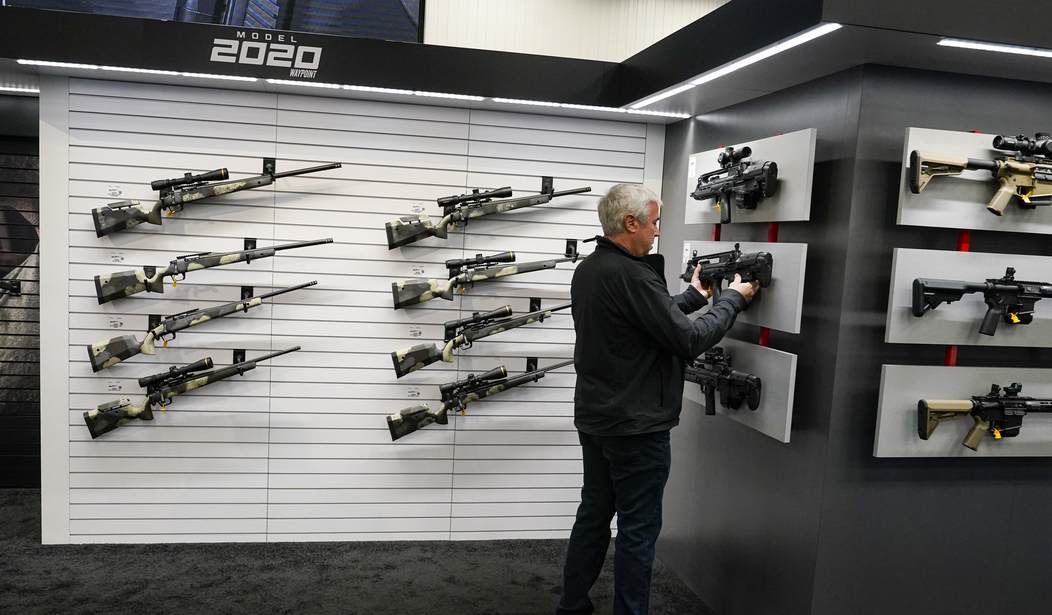Gun owners in Maine are far from out of the woods in terms of keeping their Second Amendment rights intact this legislative session, but there’s at least one bit of good news from the statehouse. An absurdly anti-2A bill that would create a civil cause of action to sue gunmakers over the sale of “abnormally dangerous” firearms received its first vote in a legislative committee this week, and as NRA’s Institute for Legislative Action reports, it did not go well for the gun prohibitionists.
In a work session for the Maine Joint Standing Committee on Judiciary, LD 1696, “An Act to Create a Civil Cause of Action for Persons Suffering Damages Arising from the Sale of Abnormally Dangerous Firearm,” was voted OUGHT NOT TO PASS. This marks a significant victory for all Mainers who support our Second Amendment rights. The bill will still move to the floor for a vote in the future, but is now positioned to fail thanks to the advocacy of gun-rights supporting Mainers.
How does one determine whether a particular firearm is “abnormally dangerous”? The language of LD 1696 is so broad and ambiguous that an activist judge could find almost every firearm in existence meets that standard.
There is a rebuttable presumption that a firearm-related product is abnormally dangerous and likely to create an unreasonable risk of harm to public health and safety if:
(1) The firearm-related product’s features render the product most suitable for assaultive purposes instead of lawful self-defense, hunting or other legitimate sport and recreational activities;
(2) The firearm-related product is designed, sold or marketed in a manner that foreseeably promotes conversion of legal firearm-related products into illegal firearm-related products; or
(3) The firearm-related product is designed, sold or marketed in a manner that is targeted at minors or other individuals who are legally prohibited from accessing firearms; and
B. A firearm-related product may not be considered abnormally dangerous and likely to create an unreasonable risk of harm to public health and safety based on a firearm’s inherent capacity to cause injury or lethal harm.
Under this legislation, even a five-shot revolver could be considered “abnormally dangerous” if a judge wanted to allow a lawsuit to proceed. We’ve seen states like California and New Jersey try to defend their bans on “large capacity” magazines by citing studies that purport to show fewer than three rounds are fired, on average, in self-defense situations. If a judge chose to adopt that standard, then any gun that could fire more than three rounds without needing to reload could be defined as “abnormally dangerous” and its maker subject to civil litigation. And since “firearm-related product” not only covers firearms but all “ammunition, ammunition magazine, firearm component or part, including a firearm frame, firearm receiver or firearm accessory”, any company that makes magazines capable of holding more than three rounds would also be subject to a lawsuit.
Then there’s the provision about things that can be converted into an illegal firearm (or firearm-related product). Gun control groups are already trying to make the case in civil litigation that most semi-automatic firearms can be “readily” converted to full-auto and should therefore already be covered under the auspices of the National Firearms Act, and this section of the bill seems like it’s designed to allow that argument to be used against companies that make semi-automatic pistols and rifles; which means the vast majority of U.S. gun companies currently in operation.
It’s great to see a joint House/Senate committee recommend LD 1696 be defeated instead of enacted into law, but this bill is so egregiously awful I’m not sure that the vote tells us much about where lawmakers stand on some of the other gun control measures that have been introduced in Augusta this year. Anti-gun lawmakers and the gun control lobby believe the mass murder in Lewiston last October has given them the best opportunity in years to put restrictions in place, even though it’s become more and more obvious that the murders were the result of repeated government failures and not a lack of gun control statutes.
The anti’s are still aiming for a ban on so-called assault weapons, waiting periods, universal background checks, and replacing the state’s “yellow flag” law with a “red flag” statute containing far fewer due process protections than what’s currently in place, and though those bills would be just as much a violation of the Second Amendment as LD 1696, they could still find favor with the Democratic majority in the legislature. Second Amendment advocates in the state need to remain engaged and involved, as well as remind their representatives and senators that the Lewiston shootings could have been prevented; not through any of these gun control policies, but simply by using the laws already in place that were ignored by federal, state, and local officials in the months and weeks before the attack.









Join the conversation as a VIP Member